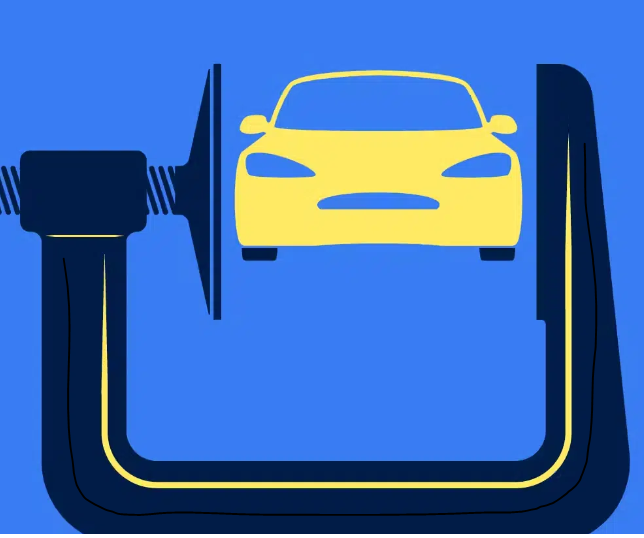When purchasing a car, one of the most significant decisions you’ll face is how to finance the purchase. Many buyers consider two main options: dealership financing and bank loans. Both have distinct advantages and drawbacks, and understanding these can help you make an informed decision that best suits your financial situation.
What is Dealership Financing?
Dealership financing is when you obtain a loan directly from the car dealership or through a financing company partnered with the dealership. The dealership acts as an intermediary, offering you the loan to purchase the vehicle, often in partnership with banks or other lending institutions. Typically, dealership financing is convenient and can streamline the car-buying process.
Pros of Dealership Financing
- Convenience and Quick Approval Process One of the most significant benefits of dealership financing is convenience. The entire process is typically streamlined, allowing you to secure financing while you’re at the dealership. With a simple application, you can often receive an approval decision within minutes, making it an excellent option for buyers who need a fast and hassle-free car purchase.
- Promotional Offers and Incentives Many dealerships offer special financing deals, such as 0% APR for a limited time or cash rebates for buyers with excellent credit. These promotions can be highly attractive, potentially saving you a significant amount of money in the long term. By financing through the dealership, you may gain access to these exclusive offers that you wouldn’t get with a traditional bank loan.
- Easier Approval for Buyers with Low Credit Scores Dealerships often work with a variety of lenders, including those who specialize in subprime lending, which can make dealership financing a viable option for those with lower credit scores. Banks may have stricter requirements, making it harder for buyers with less-than-perfect credit to secure financing. In contrast, dealerships may offer financing options with more flexible terms, though these often come with higher interest rates.
Cons of Dealership Financing
- Higher Interest Rates While dealership financing can be more accessible for buyers with poor credit, it often comes with a significant downside: higher interest rates. Dealerships, especially those targeting buyers with less-than-ideal credit, may offer financing terms that are less competitive than what you could secure through a bank. Over the life of the loan, these higher rates can lead to more money paid in interest.
- Limited Loan Options Dealerships generally offer fewer loan terms compared to traditional banks. While some buyers may be able to get a good deal, others might find the available loan options to be restrictive, especially if they need a longer loan term or more flexible repayment options. This limited flexibility can be a drawback for buyers who want to customize their financing terms.
- Pressure to Purchase Add-ons Dealerships may pressure buyers into purchasing add-ons such as extended warranties, insurance, or maintenance plans during the financing process. These additional costs can increase the total price of your car, making the financing deal less attractive than it initially seemed. It’s essential to be aware of these upselling tactics when considering dealership financing.
What is Bank Financing?
Bank loans involve borrowing money directly from a bank or credit union to purchase a vehicle. Banks typically offer personal auto loans with fixed terms and interest rates. Unlike dealership financing, bank loans are not tied to a specific dealership and can be secured before you even choose a car.
Pros of Bank Loans
- Potentially Lower Interest Rates One of the most significant advantages of bank loans is the potential for lower interest rates, especially if you have a strong credit history. Banks and credit unions often offer competitive rates compared to dealership financing, which can save you money over the life of the loan. By shopping around and comparing offers, you may be able to secure a loan with better terms.
- More Flexibility in Loan Terms Banks typically offer more flexibility when it comes to loan terms. You can choose from a variety of repayment periods, and many banks allow you to customize your loan according to your financial needs. Whether you’re looking for a longer term to lower your monthly payments or a shorter term to pay off the car faster, bank loans generally offer more options.
- No Pressure to Buy Add-ons When financing through a bank, you’re not tied to a specific dealership, meaning there is less pressure to purchase additional products or services. This allows you to focus solely on the vehicle itself without worrying about upsells like warranties or insurance, which can add unnecessary costs.
Cons of Bank Loans
- Longer Approval Process Bank loans typically involve a more extended approval process than dealership financing. You’ll need to complete an application, provide documentation, and potentially wait several days for approval. This can be inconvenient for buyers who are looking to finalize a car purchase quickly. Additionally, some banks may require a more detailed credit check, which can delay the process.
- Stricter Credit Requirements While banks offer lower interest rates, they also tend to have stricter lending requirements. If you have a low credit score or a limited credit history, it may be difficult to secure a bank loan with favorable terms. In contrast, dealerships are often more willing to work with buyers who have less-than-perfect credit, although this may come with a higher interest rate.
- Upfront Financing Unlike dealership financing, which may allow you to finalize the deal directly at the dealership, bank loans typically require you to secure financing before purchasing the car. This means you need to arrange financing in advance and be pre-approved for a loan, which may add time and effort to the car-buying process.
Which Option is Right for You?
The choice between dealership financing and bank loans largely depends on your personal financial situation and preferences. If you have excellent credit and want to secure the best possible terms, a bank loan may be the better choice, especially since it offers potentially lower interest rates and more flexibility in loan terms. On the other hand, if you have less-than-perfect credit and need a fast and convenient financing option, dealership financing may be a better fit, even if it means paying a slightly higher interest rate. Regardless of the option you choose, it’s important to compare loan terms, interest rates, and total costs to ensure you’re getting the best deal for your situation.


